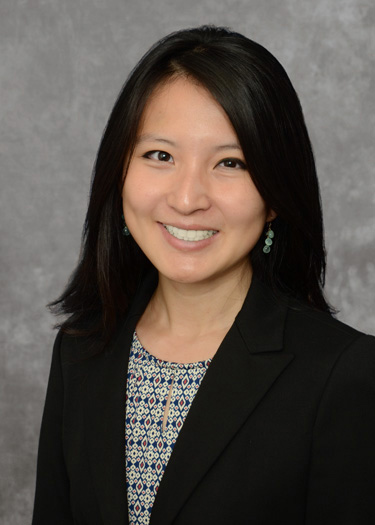Takeaway
The clinically excellent clinician understands that what we say and do may matter more than what we know.

Connecting with Patients | January 13, 2020 | 4 min read
By Lingsheng Li, MD, MHS, University of California, San Franscisco
I met Emily during what felt like the lowest point of my second year of residency. It was mid-December and the sky remained black when I entered the hospital in the morning and on the way home at the end of my shift. I was rotating through the inpatient oncology service after finishing a challenging few weeks as the senior resident on the intensive care unit where imposter syndrome crept in on a daily basis. I met patients who were terribly sick from both the genetic mutations that invaded their bodies and the potent medications combatting their diseases. Every day, I stressed over strings of letters and numbers that made up tightly-crafted protocols; I typed in orders to treat fever, nausea, vomiting, diarrhea, nose bleeds, mouth sores, and infections; I relied on check boxes to remind myself of labs to follow, vitals to monitor, and tasks to complete before the end of the day; I held tightly onto contingency plans due to fear of being unprepared if someone “crashes overnight.”
One night, Emily, a schoolteacher, was admitted to the unit just hours after her primary care doctor alerted her to abnormal lab results highly worrisome for cancer in her blood. The following morning, we crowded around her bed as the attending gently described plans to initiate chemotherapy pending results from the bone marrow biopsy. It was clear from his tone and carefully chosen words that he had shared this life-altering information to countless other patients.
Based on what he explained to her, I was about to jot down that day’s “to-dos” when I looked over at Emily. Despite being in a sun-filled and almost uncomfortably heated room, she looked pale and cold. The anxious frown that formed the moment we walked into the room never left her face. She worried about her future with her family and students. I worried about how she was going to get through the next few days.
Soon after starting chemotherapy, Emily experienced horrible and unrelenting side effects. Previously a devoted runner, she became too weak to walk the few steps from her bed to the restroom without leaning onto her IV pole. During morning pre-rounds, I always brought more questions for her instead of answers. However, in the afternoons, our conversations were longer and the vocabulary less medically-driven. She told me about her path to teaching. As the days went by, I met her husband, sister, and mother who helped adorn her walls with colorful hand-drawn cards and joyful photographs of her students.
During one of my overnight calls, I received a page from Emily’s nurse: “Pt reports 10/10 headache. Also hearing voices that aren’t there–please come assess.”
I quickly went to her room in a state of silent panic. Was this another side effect of chemo? Could she have had a brain bleed from the low platelets? She’s been febrile–has the infection worsened? Despite the unremarkable CT scan, I checked with Emily and her nurse multiple times throughout the night, fearful that I had missed something critical and frustrated at myself that I did not know more. I learned from the attending in the morning that the headache and hallucinations were side effects from one of her antibiotics. The following day, during our afternoon visit, Emily and I both expressed relief that she felt better after the medication was changed.
“I’m sorry you had such a rough night,” I apologized—embarrassed that I hadn’t been able to offer more at the time.
“Thanks for worrying about me,” she replied.
On the last day of my two-week rotation, I handed off my pager to the incoming day team and walked to Emily’s room to say goodbye. She was sitting by the window with her sister. The sunlight bounced off the photos and posters that hid the white hospital walls.
“I’m getting a haircut today!” Emily smiled brightly.
When she happily shared the style she was contemplating, her sister and I both offered nods of support.
I told her how glad I was that she was getting better. However, I was also sad because it was my last day on service so I wanted to stop by to say goodbye.
Her tears took me by surprise. Then I started crying when she said, “You’ve been my sunshine.”
I wanted so badly to tell her that she brought me out of a dark cloud when I thought I could not help patients who were sick and suffering. She taught me that in medicine, what we do as physicians is just as important and may matter more (to us and the patients) than what we know. I wish I told her that she reminded me of my favorite elementary school teacher. Instead, I said, “Thank you for making me a better doctor.”
This piece grew out of a writing workshop with author Suzanne Koven, MD, MFA, who shares her joy of storytelling in medicine with lifelong learners around the world.

